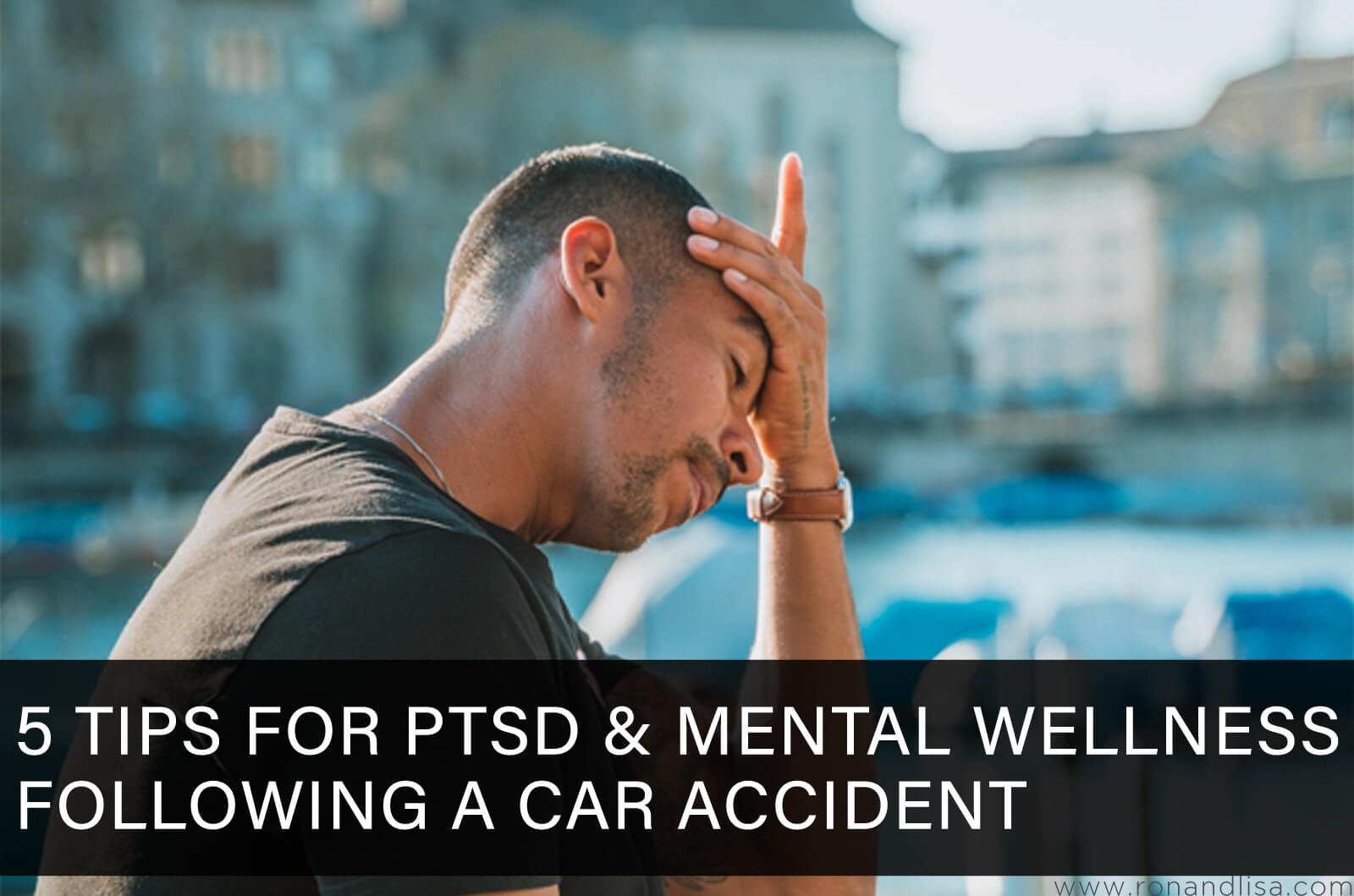When people hear the term PTSD or post-traumatic stress disorder, a shell-shocked Army veteran may come to mind. Or, one might envision soldiers returning from Vietnam or the Persian Gulf who are no longer able to function as well in society as they once could. These are stereotypes, however, that take a narrow-approached view of the PTSD anxiety issue.
The reality is that PTSD can occur in everyday citizens, not just war veterans. Someone could experience PTSD by surviving an assault or robbery or after experiencing a natural disaster such as a hurricane or tornado. PTSD can also occur after being involved in a traumatic car accident. Here are five things you should know about PTSD as it relates specifically to car accidents.
1. PTSD Can Happen to Anyone
Taking the proper steps after a collision might involve seeing a doctor if you’re injured. It could also mean:
- Talking to a therapist
- Getting your vehicle repaired or replaced
- Dealing with your insurance company
If you feel highly stressed after a vehicular accident, you might have PTSD. There is a stigma with some people about experiencing mental or psychological conditions; feeling weak in admitting that there is emotional trouble.
PTSD after a vehicular accident can happen to anyone of any age, race, gender, background, etc. If it happens to you, there is nothing to feel shameful about. After experiencing something traumatic, PTSD can be a perfectly natural reaction
2. Seek Therapy if Necessary
The real problem with PTSD occurring after a car accident is that:
- Some people refuse to consider that they have PTSD
- Some individuals refuse to seek professional help, even when it’s clear they need it
Again, these limitations can be due to beliefs or fear of judgment from friends or family about getting psychological help. Some people may be stoic and avoid therapy, but do so at their detriment.
Seeking professional help makes you stronger, not weaker. If those around you fail to see that, it might be prudent to distance yourself from them temporarily and do what’s best for your long-term mental health.
3. Remedies May Help
In some cases, people who experience PTSD might require a medical prescription from a qualified professional or alternative and natural therapies. Effective remedies can have positive effects on those with PTSD by stabilizing one’s mood and bringing the person to a comfortable baseline where he or she is not as anxious or stressed.
In terms of car accidents where the individual in question witnessed a tragic death or was involved in a vehicular homicide, therapies recommended by a professional can be a critical stepping stone on the road to recovery. Witnessing a traumatic event isn’t something one can get over quickly or easily; calming substances can be a great asset.
4. You May Have Difficulty Sleeping
Those with PTSD often report insomnia. Trouble sleeping can occur by replaying the accident over and over in one’s mind. The victim might wish they had done things differently, and seek to turn back the clock with feelings of regret and guilt. While reversing time is impossible, worrying every night won’t help.
With sleep deprivation comes a list of new problems. A therapist may offer a natural or prescription nighttime sleep aid, allowing you to get the proper rest that your mind and body desperately requires.
5. You May Not Feel Safe Driving for a While
For drivers who suffer from PTSD after a distressing accident, it can be challenging to get back on the road again. The traumatic event and horrific details might replay themselves in your mind again and again. It can take willpower to overcome associated phobias. It’s important to be patient and gentle with yourself.
You should rely on family members or friends to drive you around if and when possible following the accident. You might decide that public transportation or ridesharing makes more sense for you in the weeks and months that follow suit. When you do feel ready to drive again, it’s a good idea to start in an empty parking lot until you’re calm, confident, and prepared to drive in traffic; especially during the stressful times of the day like rush hour.
Car accident PTSD is much more common than people realize. Medical professionals today understand it better than they used to and help is readily available. Don’t ignore mental conditions such as stress, anxiety, or panic attacks; these are handled better if treated right away.
This post was sponsored. All thoughts and opinions are our own.





Another great article…which all I can tell anyone is this position:
PLEASE, do yourself a favor and get the help you deserve!!
I’ve had 2 TBI’s and multiple moderate to severe, as well as mild to moderate.
My Neurological/Physchological Team of Doctors claim I’m a miracle…that I should’ve been in a facility that feeds, bathes me, etc., and that I wouldn’t even know my only child’s name, nor recognize him at all…what a horrible thing that would’ve been for my son to endure. I couldn’t put 2 words together to say Hi mom…or Hi dad. I couldn’t even add 1 +1 to get 2. But I did spend 4-5 days a week with intensive work and therapies, etc…for many long years…just to get as close back to being “me” again…as I could possibly ever be. I put in the time…a lot…and it was well worth the entire lengthy struggle. Well, worth, my own family not understanding head injuries, or what I was going through…and losing pretty much every sibling, I had 6…and losing all my friends, but 1…Thank God for her support! Am I that “me” again…no, I am not, never will be…I’m different and accept myself for what I’ve regained. I kind of fake being “me”…but my son knows it and still loves me very much!!! It changes a person…and I was one of the lucky ones…!! Sempre’ Avanti…
Thank you for sharing, Tess! What a journey you went through. We appreciate you being so vulnerable and encouraging those who need it to seek help if they find themselves in a similar position. Stay safe, happy & healthy 🙂